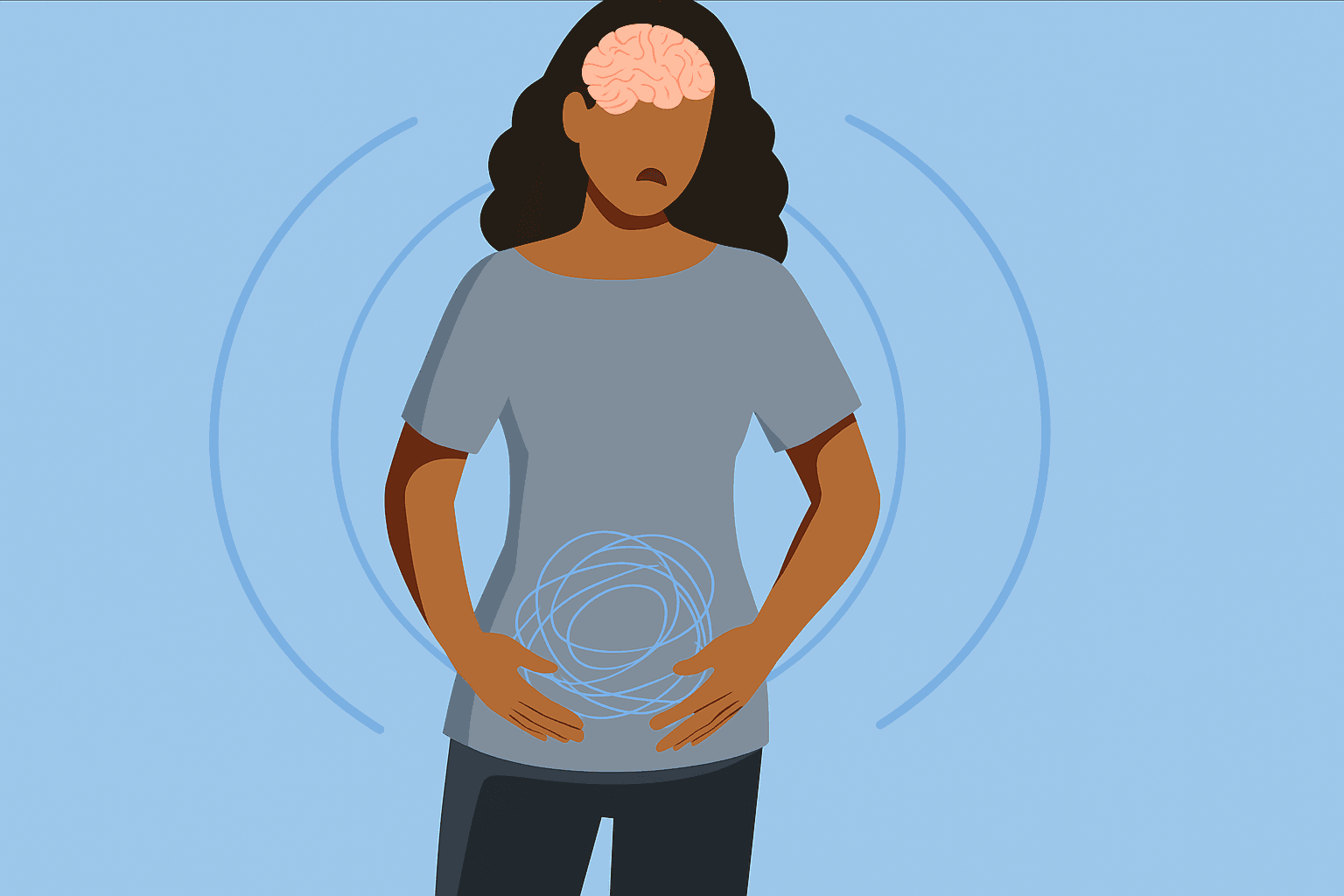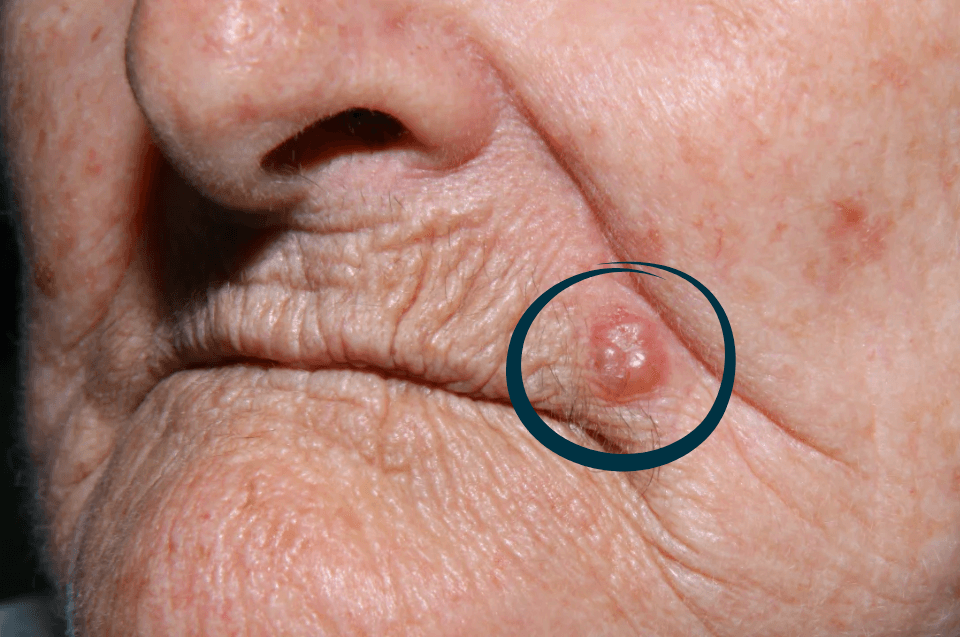Irritable Bowel Syndrome (IBS) is a common yet often misunderstood condition that affects millions of people worldwide. While it does not cause structural changes in the digestive tract or progress to more serious illnesses, its symptoms can significantly affect quality of life.
In this article, you’ll learn what IBS is, its possible causes, symptoms, how it’s diagnosed, treatment options, and some common myths surrounding the condition.
What is Irritable Bowel Syndrome?
IBS is a functional disorder of the intestine, characterized by a set of chronic gastrointestinal symptoms such as abdominal pain, bloating, gas, and altered bowel habits — including diarrhea, constipation, or alternating between the two.
Because it’s a functional condition, this means there’s no detectable inflammation, infection, or visible physical damage to the intestines, even though the symptoms are real and intense. It’s a benign syndrome, but it needs to be managed so it doesn’t interfere with daily life.
What Causes IBS?
The exact cause of IBS is not fully understood. It’s believed to be multifactorial, with several contributing and aggravating factors:
Intestinal motility changes: the intestines may contract more intensely or more slowly than normal.
Visceral hypersensitivity: the gastrointestinal nervous system may overreact to normal stimuli.
Imbalance of gut microbiota: changes in intestinal flora seem to be linked to the syndrome.
Stress and emotional factors: there’s a strong connection between the gut and the brain. Anxiety, depression, and stressful events can trigger or worsen symptoms.
Previous gastrointestinal infections: some IBS cases begin after bacterial or viral infections.
Diet: specific foods can worsen symptoms, such as dairy, caffeine, alcohol, soda, legumes, among others.
What Are the Symptoms of IBS?
Symptoms vary from person to person in type and severity. The most common include:
Abdominal pain or discomfort, usually relieved after bowel movements
Bloating and abdominal distension
Excessive gas
Changes in stool consistency, such as:
Diarrhea (IBS-D)
Constipation (IBS-C)
Alternating both (IBS-M)
Feeling of incomplete evacuation
Mucus in the stool
Symptoms often worsen during periods of stress or after eating certain foods.
How Is IBS Diagnosed?
IBS is diagnosed clinically, meaning it’s based on symptoms and ruling out other conditions that cause similar symptoms, such as:
Celiac disease
Inflammatory bowel disease (Crohn’s or ulcerative colitis)
Intestinal infections
Food intolerances
To do this, doctors may request lab tests, endoscopies, or imaging exams — but only to rule out other conditions. There is no specific test that detects IBS.
The Rome IV criteria used in diagnosis include:
Recurrent abdominal pain for the last 3 months, associated with two or more of the following:
Related to bowel movements
Changes in frequency of bowel movements
Changes in stool appearance
What Is the Treatment for IBS?
There is no definitive cure for IBS, but symptoms can be controlled through lifestyle changes, diet, and sometimes medications.
Main approaches include:
Balanced diet: avoiding foods that trigger symptoms is key. The low-FODMAP diet, which limits fermentable carbohydrates, has shown good results.
Increased fiber intake: especially helpful for constipation-predominant IBS.
Stress management: therapy, meditation, yoga, and physical activity can help.
Probiotics: help balance intestinal flora.
Medications, depending on the type of IBS:
Antispasmodics for pain and cramps
Gentle laxatives (for constipation)
Antidiarrheals
Low-dose antidepressants (for chronic pain and associated anxiety)
Treatment must be individualized based on symptom type and severity.
Myths and Truths About IBS
“It’s a psychological illness.”
❌ Myth. IBS is a functional condition with real physiological mechanisms. Stress can aggravate it, but it’s not the sole cause.
“It’s contagious.”
❌ Myth. IBS is not transmissible between people.
“It can lead to cancer.”
❌ Myth. IBS does not cause cancer nor increase the risk of serious diseases.
“Only food triggers the symptoms.”
❌ Myth. While diet has an impact, the nervous system and gut balance also play major roles.
“There’s no treatment.”
❌ Myth. Though there’s no cure, symptoms can be managed effectively with proper medical guidance.
Living with IBS
Medical follow-up is essential to help identify personal triggers and develop the best treatment strategy. With dietary and lifestyle changes, quality of life can be fully restored.
Support groups, cognitive therapy, and enjoyable activities are also part of comprehensive care for people with IBS.
Fun Fact: Special Access at Disney and Universal Parks
A little-known but helpful tip for people with IBS: some theme parks, like Disney and Universal Studios in Orlando (USA), offer special assistance to guests with this condition. Upon arrival, you can visit Guest Relations, explain your medical condition (such as IBS), and after a brief conversation, you may receive a virtual queue or priority system. This lets you enjoy the rides without having to wait long in line — a huge relief for those who may urgently need restroom access. It’s a great example of empathy and accessibility improving leisure experiences for people with chronic conditions.
Conclusion
IBS is a benign condition, but one that can greatly affect physical and emotional well-being. With a proper diagnosis and individualized treatment, it’s possible to live well with IBS. The most important step is to seek medical help and avoid self-diagnosing, which could delay proper care.



